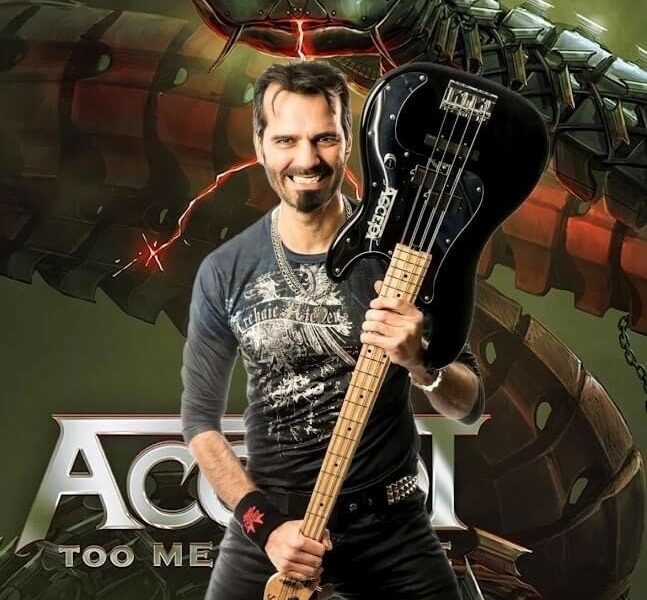

Today we’d like to introduce you to Martin Motnik.
Hi Martin, can you start by introducing yourself? We’d love to learn more about how you got to where you are today?
Born and raised in Ludwigshafen, Germany, I got my first guitar at age 8. When I was 13 my older brother brought home an electric bass, and from that moment on, I was hooked. During high school, I would practice every day and study bass players such as John Entwistle (The Who), Billy Sheehan (David Lee Roth band), and Geddy Lee (Rush). I started my first original band at age 16 and played with several bands in Germany. I didn’t fully commit to music, though, and first worked in a bank and, after four years, quit and went to university to get an MBA degree. After graduating in 2003, I decided to pursue music full-time after moving to Munich, which promised to offer more and better chances.
In 2008 I decided to give it a shot in the United States and temporarily moved to Los Angeles. I went to jam sessions to network and meet people, most regularly at the famous Baked Potato. The first ‘real” band I joined in LA was called Ecotonic and consisted of the couple Jason and Janea Ebs and AC/DC’s drummer Chris Slade. We made an album and played several shows around Southern California. Around the same time, I was hired by Uli Jon Roth, former guitar player for The Scorpions, to join him on his US tour, which was a huge stepping stone in my career. I later did two more tours with him. All that progress encouraged me to stay in the United States and pursue my career there.
In 2010 I moved to Las Vegas and played almost every casino stage there. I also recorded in “real” studios with studio legends like Hal Blaine and Don Randi from the Wrecking Crew, a group of musicians who played on almost every record in the 60s and 70s, from Elvis Presley and Nancy Sinatra to The Beach Boys. I also started my website www.studiobassist.com where I offer to record bass tracks for other people through the internet.
From 2014 to 2018, I worked for Carnival Cruise Line as a showband musician and later as a music director, playing on the high seas and visiting places such as Sydney, Australia, Fiji, Tahiti, and Bora Bora, Hawaii, Alaska, Bahamas, Grand Cayman, and Mexico. Leaving that job behind, I relocated to Nashville in late 2018, where I learned that the band ACCEPT – legendary pioneers of heavy metal from Germany – had just lost their bass player, who decided to retire from the band after 40 years. ACCEPT had been a household name when I was growing up, known as “the other rock band from Germany” besides the Scorpions. Coincidentally they were based out of Nashville as well; I got invited to audition and got the gig. We immediately went on a tour that was already scheduled, and I learned two hours of material that was going to be performed with a symphonic orchestra within 10 days. We further performed at several festivals around Europe, the USA, and South America. We embarked on that European tour shortly after, which was a huge success.
In 2020 ACCEPT recorded a new album, “Too Mean To Die,” on which I was lucky to contribute to some of the songwriting. I made it through the pandemic between that project and recording bass tracks virtually for other people. The pandemic, however, prevented us from touring the album, so I decided to record my second solo album, “Dream Chaser” (after my 2005 debut “Bass Invader”), for which I invited several musical heroes of mine to partake. I had the honor to collaborate with Joe Satriani, Bruce Kulick (KISS), Gregg Bissonette (Ringo Starr All-Star Band), Jennifer Batten (Michael Jackson), and Frank Gambale (Chick Corea), and Derek Sherinian (Dream Theater), among others.
ACCEPT is now back on the road, and we’re currently playing summer festivals around Europe. We have a North American tour booked starting in September 2022, and our twice-postponed European tour is finally supposed to happen in January and February 2023. That’s where I’m standing right now as a musician. I’m very grateful for what I was able to experience so far by plucking some heavy strings.
We all face challenges, but looking back, would you describe it as a relatively smooth road?
I guess no musician’s path is a smooth road. Whenever you try to make your passion your profession, obstacles and roadblocks might discourage you from pushing forward. My parents would’ve loved to see me take a more “traditional” way, particularly at the beginning of my career. However, they have now “accepted” (pardon the pun) the life I’ve chosen and seem content and maybe even a bit proud. Of course, I have had financial struggles along the way; which artist doesn’t? Relationships fell apart because I prioritized making music over a potential family, and you often feel quite lonely. But I’ve been lucky to meet helpful and generous people, and I feel honored to have played with some real musical legends. Joining ACCEPT was a perfect “right place at the right time” moment, which is a real dream come true. So looking back, I do remember many sleepless nights and worrying thoughts, especially regarding finances and hoping for enough gigs to come in, but all in all, it’s been really good so far.
Alright, so let’s switch gears a bit and talk business. What should we know about your work?
I advertise as a professional bass player for the studio, sessions, and freelance gigs. I thereby see myself more as a service provider first and only second as an artist. I aim to make the person or band who hires me sound as good as possible. I’m there to provide a solid foundation upon which the others can build. Besides trying to be musically as proficient as possible, I try to make the others feel they can rely on me on and off stage. I’ll strive to be on time, well prepared, easy-going, drama-free, cooperative, encouraging, open to criticism, and positive. In short, as I would define a professional to be. I don’t know how far that sets me apart from other bass players since I know many amazing bassists out there do an incredible job, but I try to be the best version I can be while always aiming to improve. So far, it has served me well, I think, in live situations as well as in the studio.
What were you like growing up?
I always felt a little bit out of place growing up. My biggest influence was my brother Frank, now a successful audio engineer in Frankfurt, Germany. He’s six years older than me, and his influence always made me want to be older than I was. I wanted to go to rock concerts when I was 8, and our parents finally let him take me to my first concert when I was 11, which was the Deep Purple reunion tour. One year later, we went to see Queen with Freddie Mercury a couple of weeks before their legendary performance at Wembley Stadium. I’m sure he found it a bit annoying that I was trying to ride his coattail the whole time, but on the other side, he was very encouraging. As I said earlier, he bought my first bass guitar and encouraged me to learn other instruments, for instance, by giving me the assignment to learn the keyboard solo of Van Halen’s “Jump” on our Yamaha organ. So I didn’t have many friends my age, and I mostly kept to myself as a young teenager and rather practiced bass. For a brief moment, I even got bullied in high school, but luckily a teacher noticed it after a while, intervened, called a meeting with my parents and the principal, and threatened the bullies with suspension if it didn’t stop. Afterward, they left me alone. It only made me focus more on music, and when I started playing in bands at age 16, I developed friendships with my bandmates, who were just as dorky as me, so that we could relate to each other. I still feel that there are social skills I haven’t completely developed, and talking to girls still makes me nervous. But I’ve learned that everybody has some anxiety, and at least when I make music, I have a haven that isn’t dependent on anyone’s approval. And I have a handful of super-close friends I can rely on, next to an amazing family that always only wanted the best for me.
Pricing:
- Bass tracks (per song): $199
- Live concerts, workshops, clinics: TBD
- Online bass lesson (via Zoom): $75 / 45 mins.
Contact Info:
- Website: www.martinmotnik.com
- Instagram: https://www.instagram.com/motnik/
- Facebook: https://www.facebook.com/motnik/
- Twitter: https://twitter.com/martinmotnik
- Youtube: https://www.youtube.com/motnik
- SoundCloud: https://soundcloud.com/motnik
- Other: https://www.studiobassist.com
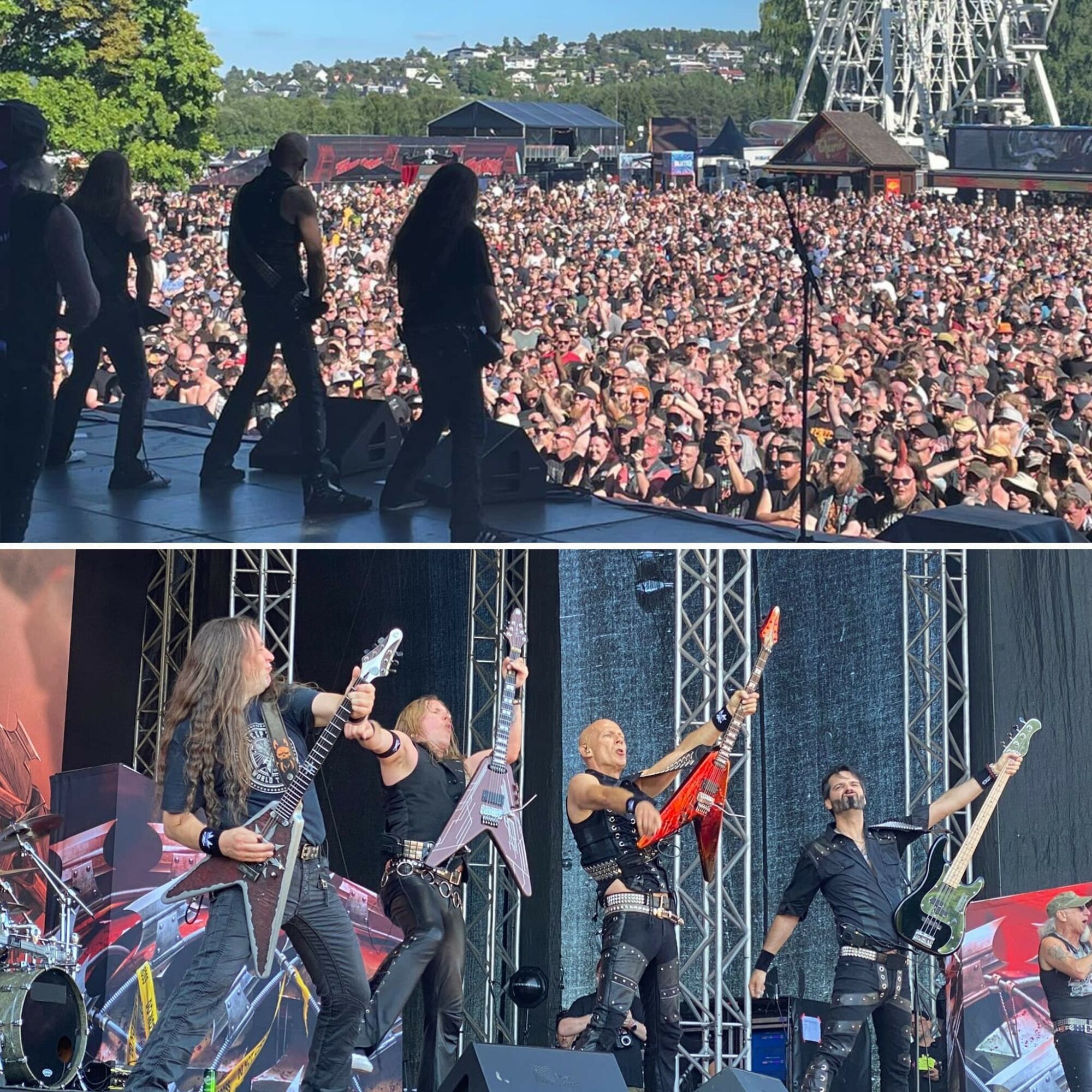
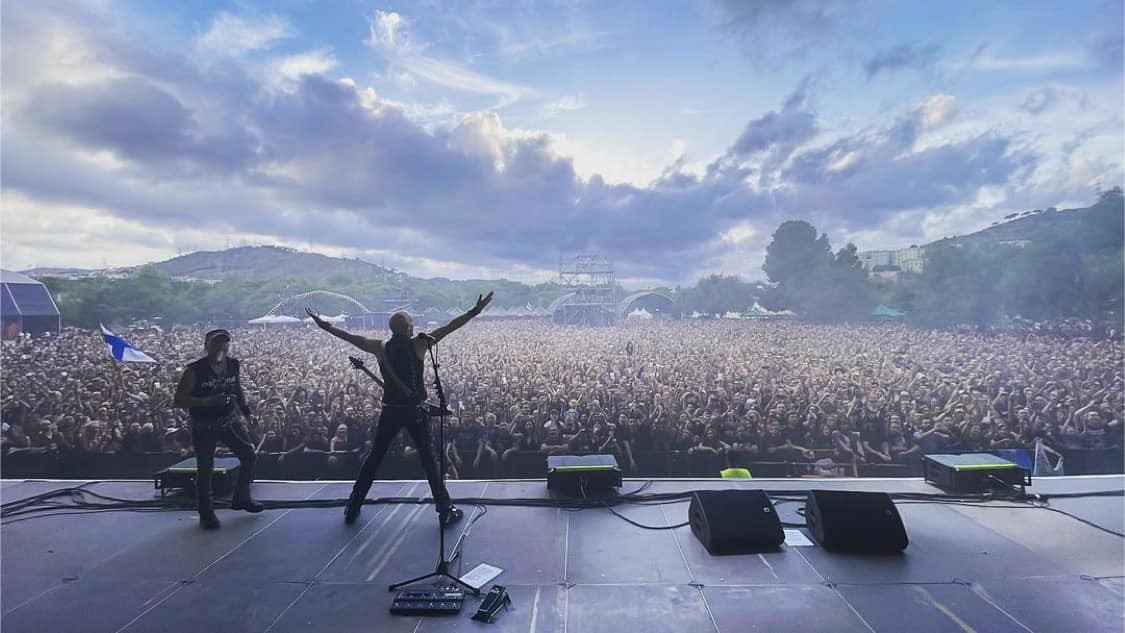
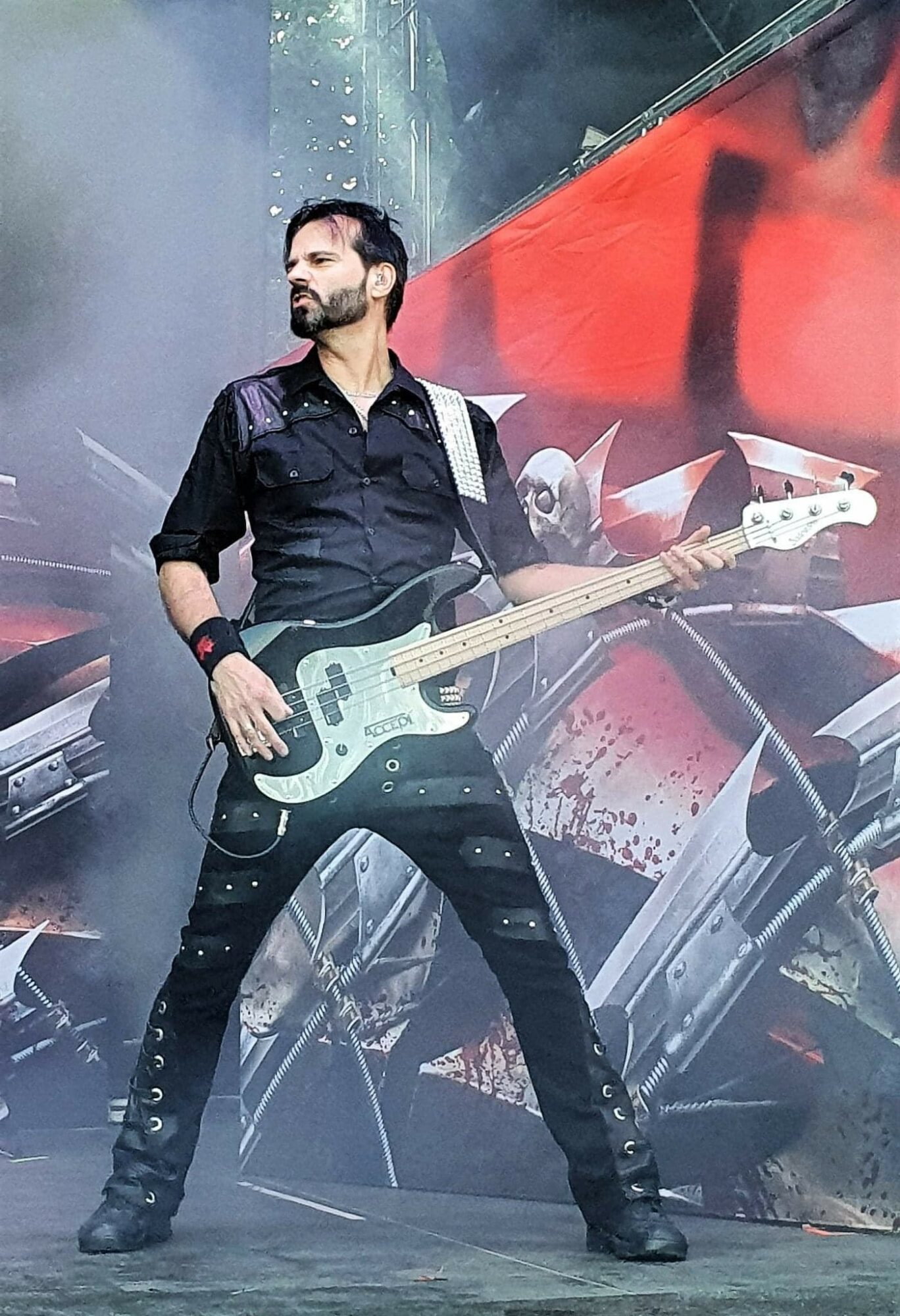
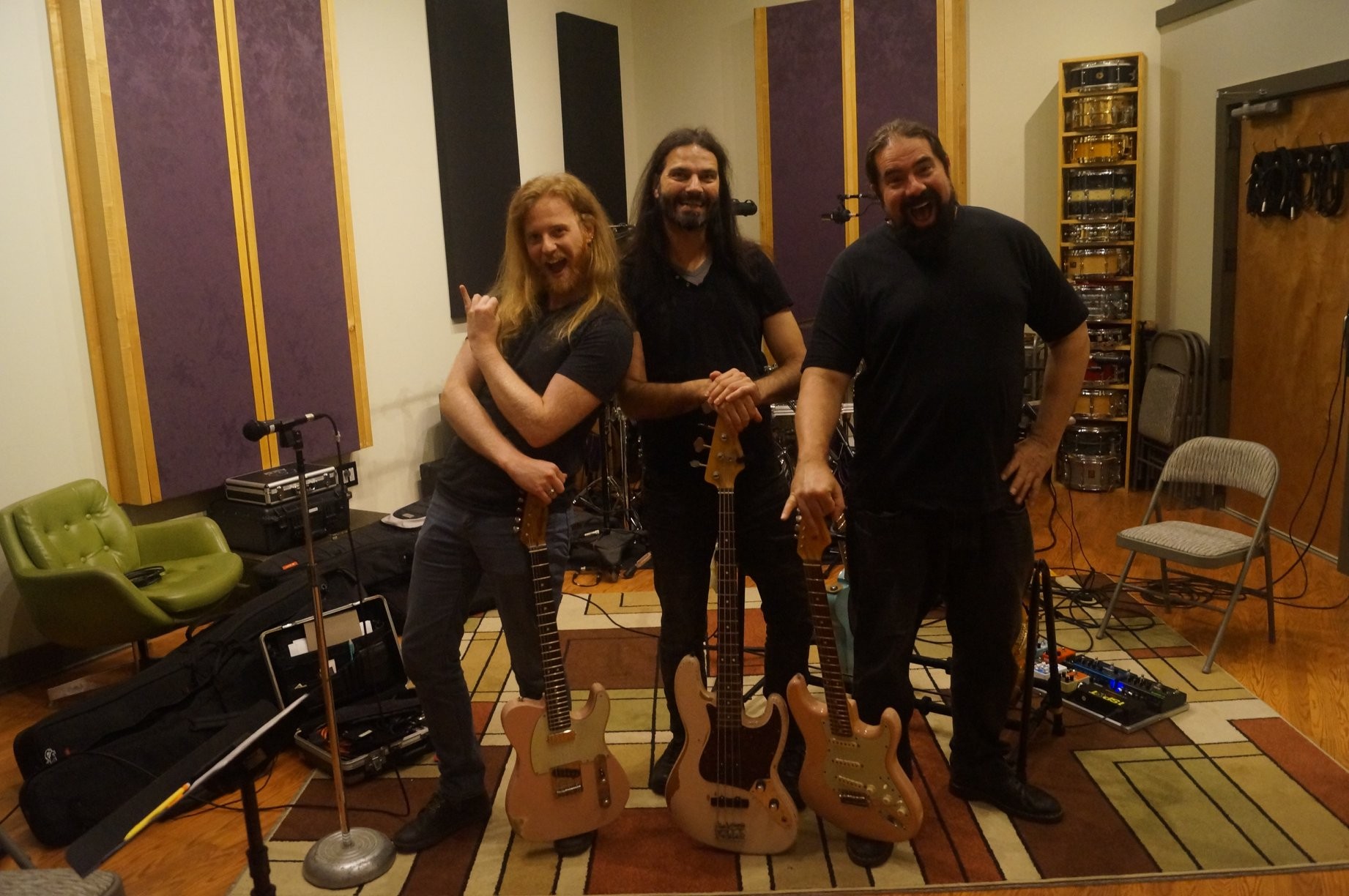
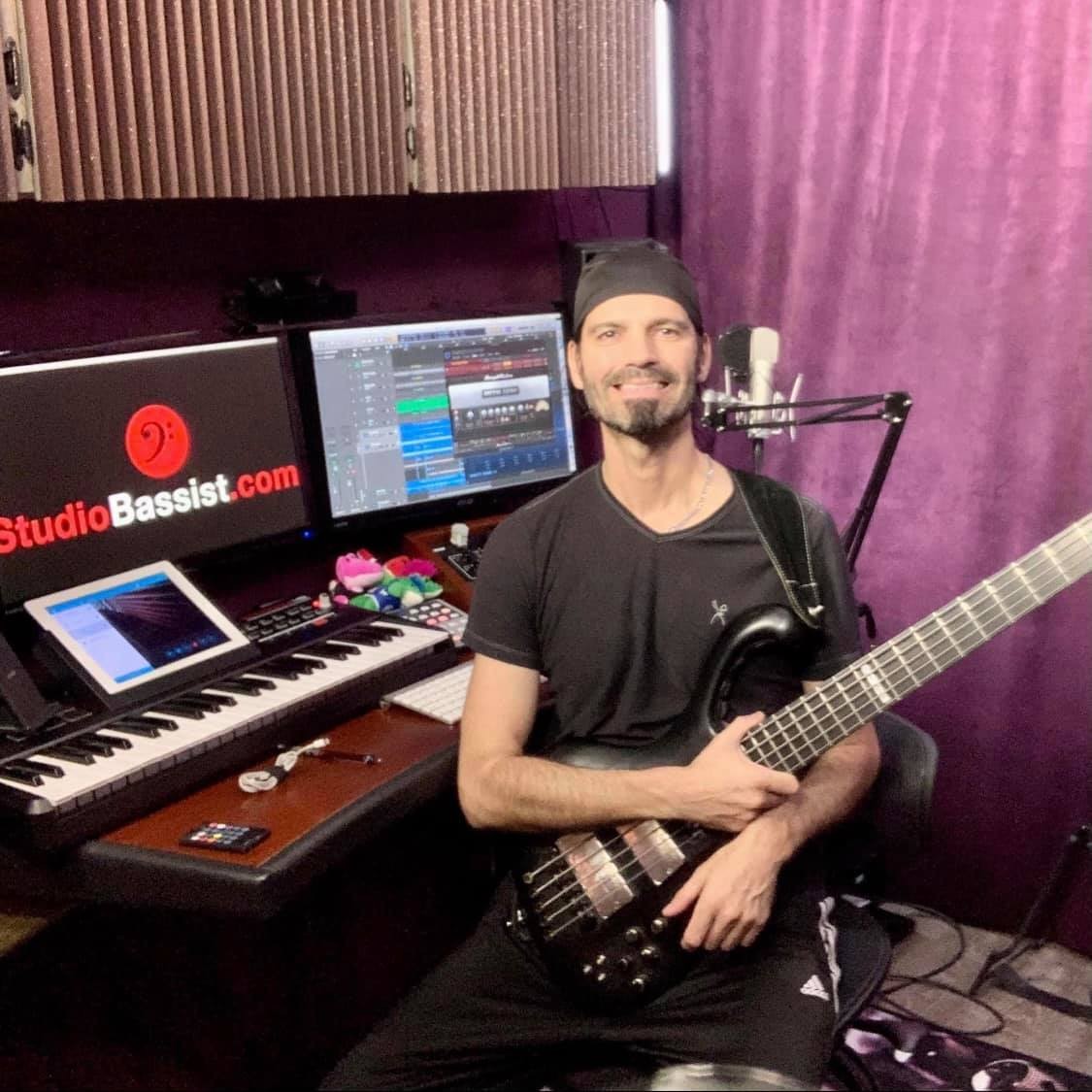
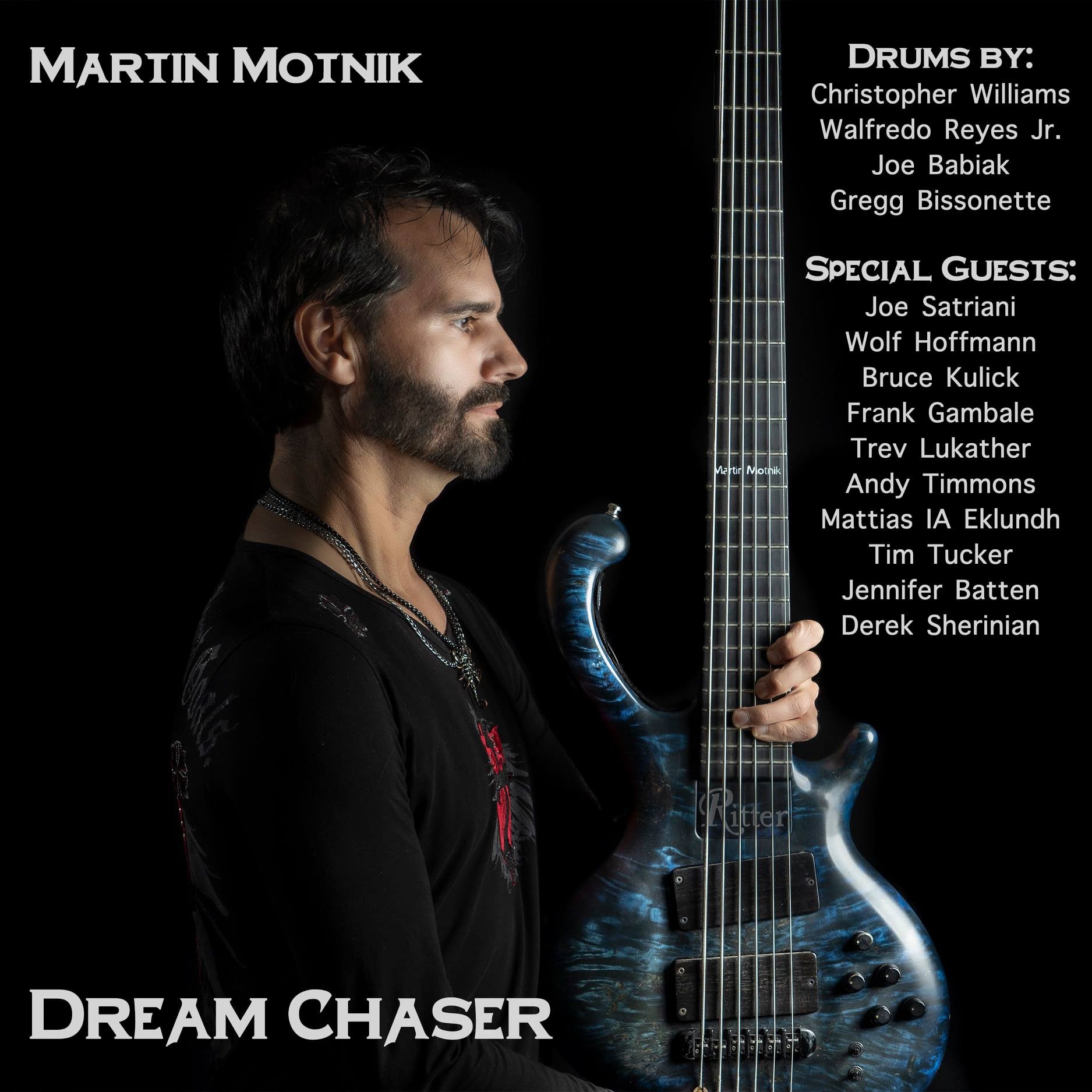
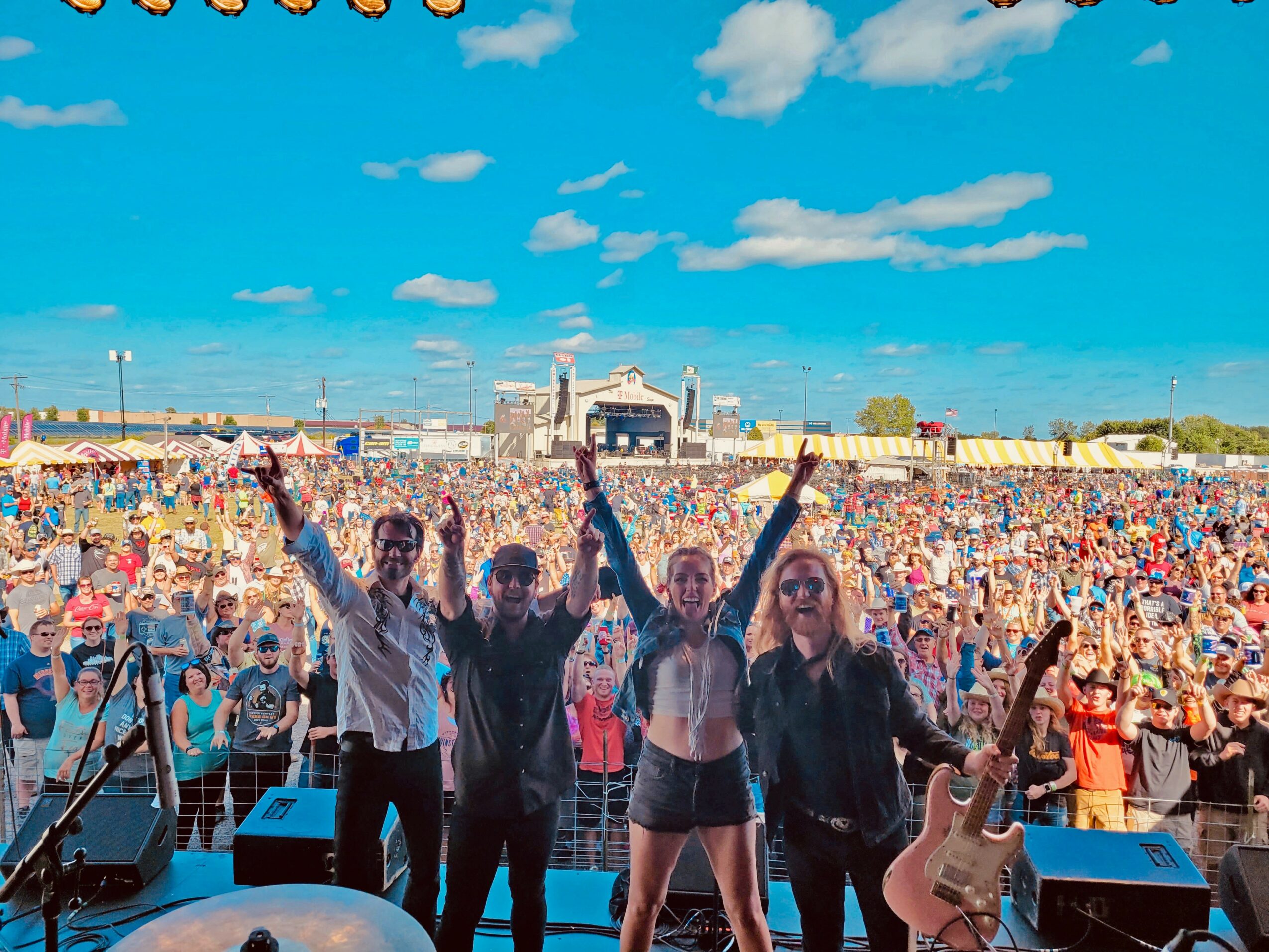
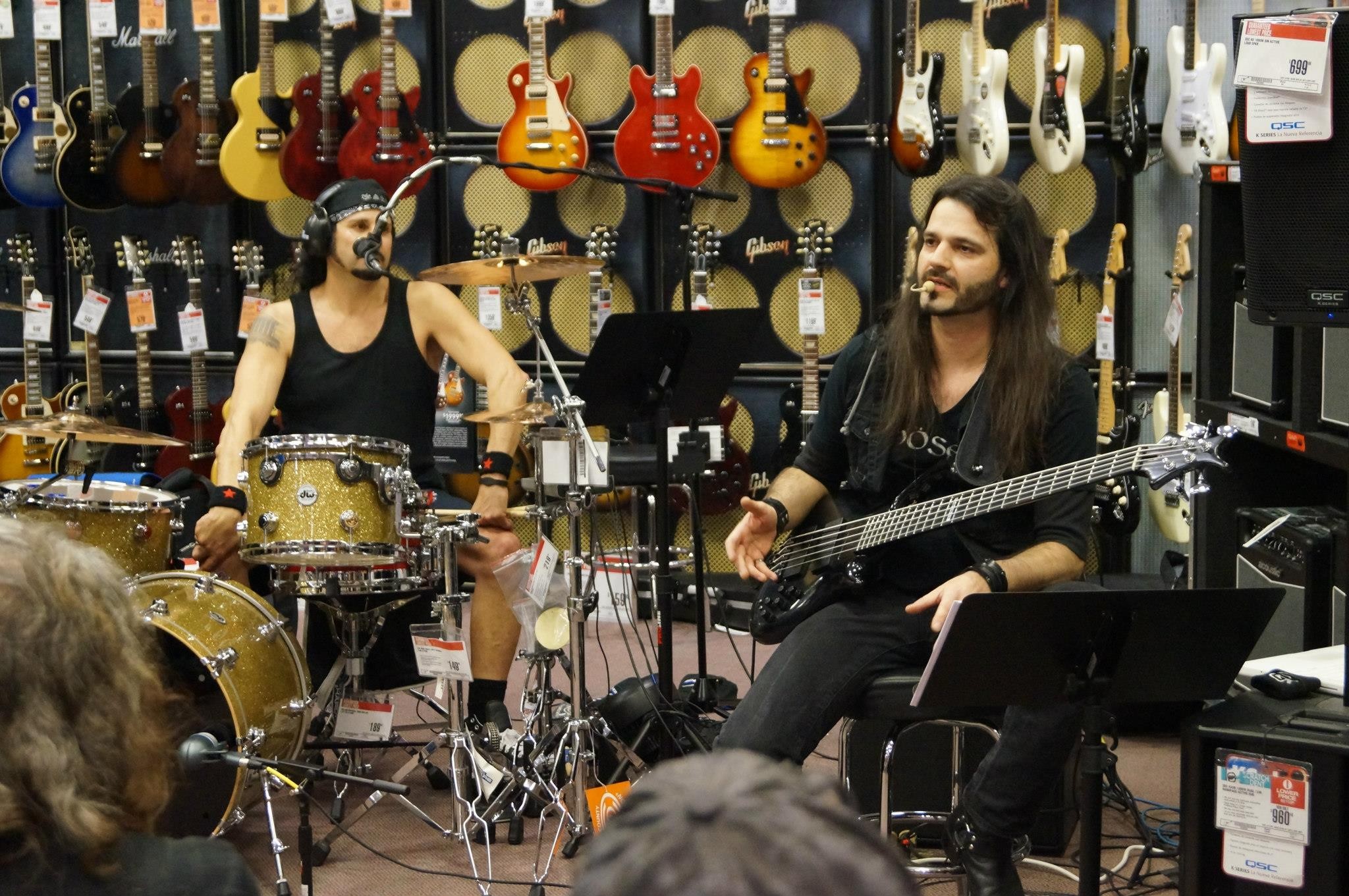
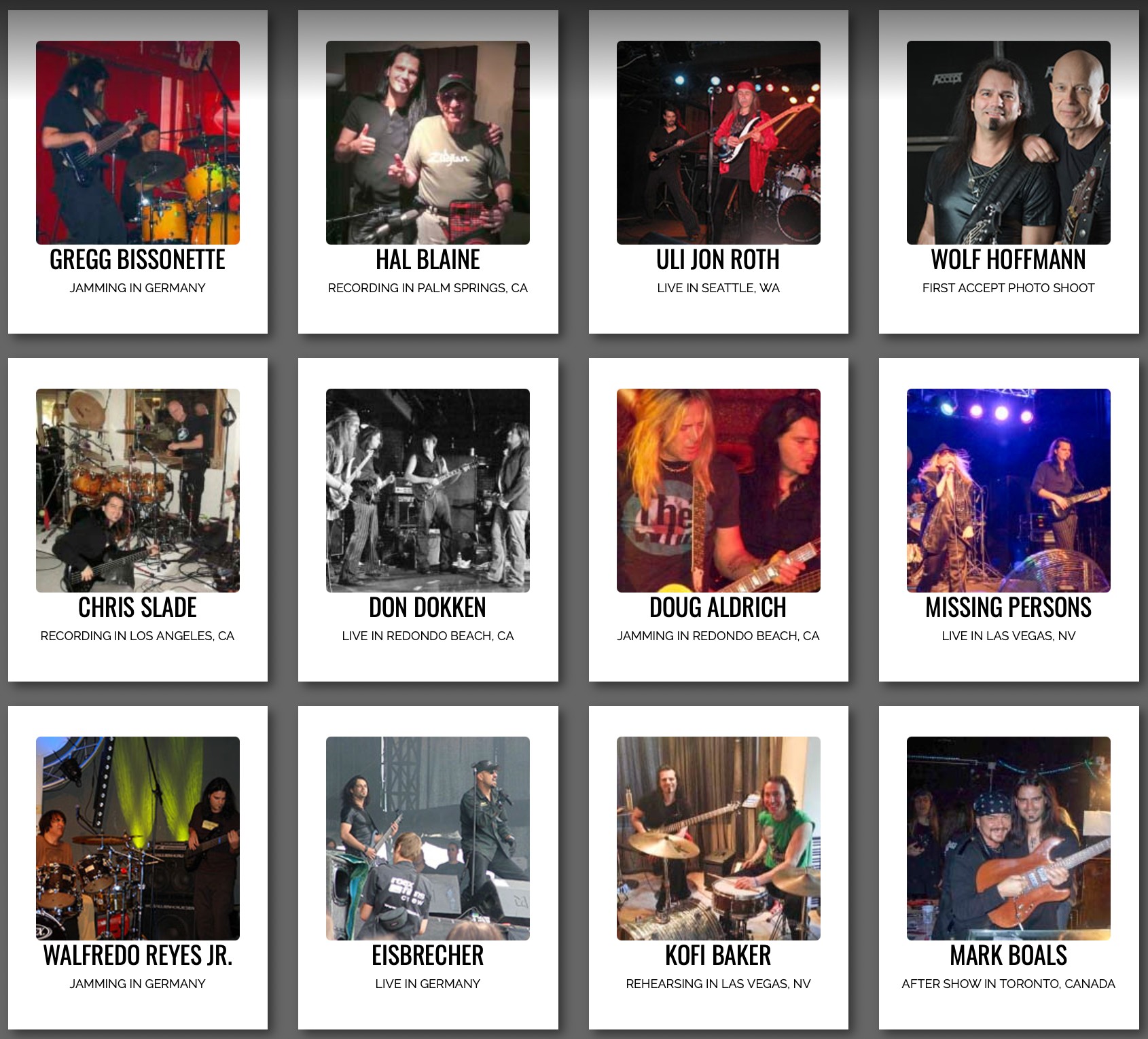
Image Credits
Main photo – Wolf Hoffmann 01 +Stage View 2 – Harald Flöter 02 +Stage view – Martin Motnik (self) 03 +Stage pose – Pete Hossa 04 +Studio – Femke Weidema 05 +StudioBassist.com – Martin Motnik (self) 06 +Dream Chaser 2 – Scott Diussa 07 +Country – Drew Carter 08 +Clinic – Alon Bitton












